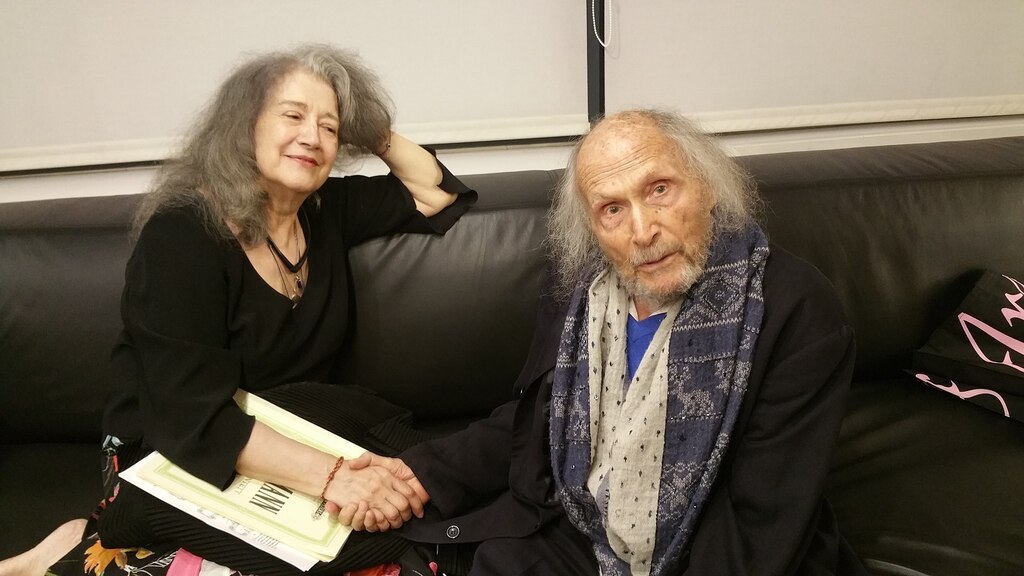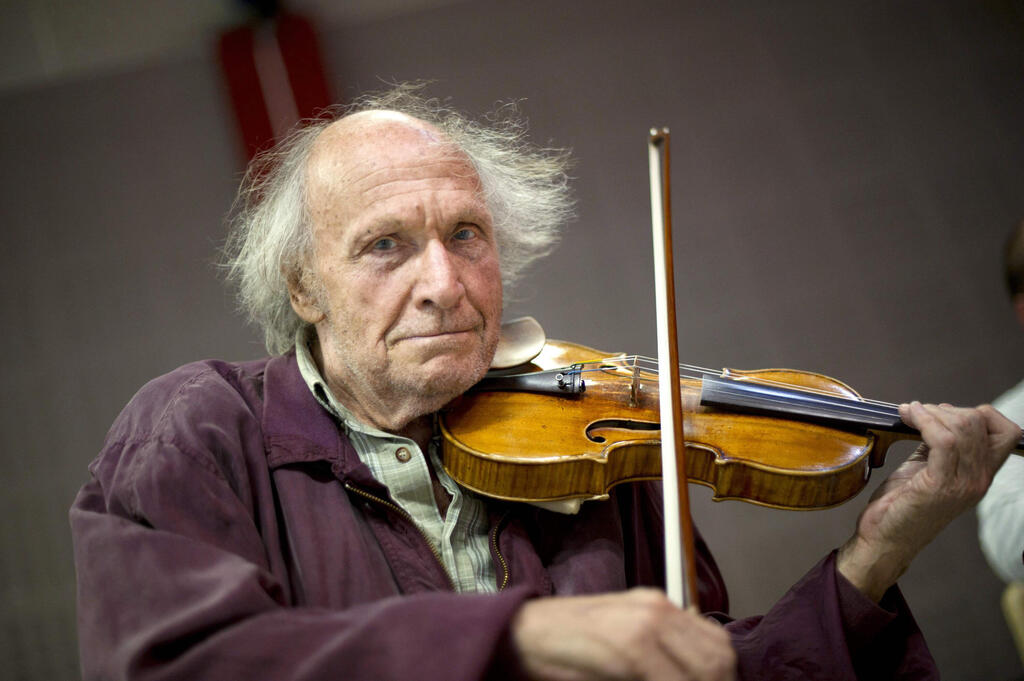Israeli virtuoso violinist Ivry Gitlis has died in Paris aged 98, his family told AFP Thursday.
As one of the modern greats of classical music, he not only performed with the best orchestras in the world but never stopped experimenting, seeking new fans far beyond the elite.
Gitlis was as comfortable playing with the Rolling Stones or jazzman Stephane Grapelli, with African storytellers or Roma musicians, as he was with classical repertoire.
Hugely charismatic, he took "the time to meet people, to seduce them, to learn to like them," Le Parisien newspaper wrote of the musician, who lived in the French capital.
With disheveled white hair and piercing blue eyes, the maestro had a reputation for being whimsical, wild and narcissistic, playing eyes closed, often improvising rather than using sheet music.
The first Israeli artist to perform in the former Soviet Union in 1955, Gitlis was also a staunch advocate of the Israeli-Palestinian peace process and a goodwill ambassador for the UN's cultural organization UNESCO.
'Born' playing
Gitlis was born on August 25, 1922 in Haifa to Jewish parents who had left what is now Ukraine for Palestine, then under British rule.
When he was five his parents bought him a violin.
"How did I start playing? I simply wanted a violin, even though I was so small that I couldn't even play it. But I decided. I chose violin, and at age six I began," he said.
"Even if he waited until the age of five to hold his first instrument, he gives the impression of being born with it," the music critic of France's Nouvel Observateur magazine wrote in 2013.
When he was nine Gitlis met Bronislaw Huberman, the founder of the Israel Philharmonic Orchestra, who recognized the boy as a prodigy and collected money for him to travel to France.
At 11 Gitlis entered the Paris Conservatory and two years later won the prestigious institution's top prize.
When World War II broke out he fled to London, hoping to join Britain's Royal Air Force, but was instead put to work performing in military camps, hospitals and munitions factories.
Man of the people
His career took off in 1951 after a scandal during a music competition when the jury went against the public and only gave him fifth place.
Gitlis debuted in the US in 1955 and went on to tour the world, playing under top conductors and with the very best orchestras, including the philharmonics in New York, Berlin, Vienna and Israel.
Everywhere he went he enchanted audiences and received long standing ovations.
2 View gallery


Gitlis with pianist Martha Argerich, after a joint performance at the Israel Philharmonic, Tel Aviv, 2018
(Photo: Courtesy )
"His ravaging intelligence, his legendary skill, his hypersensitivity, the startling contrast of his harsh and sensitive playing have made of him a huge artist but also a man of the street, close to people and life," another French critic wrote.
He distinguished himself playing Bartok, Paganini, Sibelius and Tchaikovsky, but was also sought out contemporary composers to perform like Bruno Maderna and Iannis Xenakis.
Gitlis also dabbled in acting, including cinema appearances in Francois Truffaut's "The Story of Adele H" (1975) and as a violin-playing vagrant in an Inspector Maigret film.
A father of four, three of whom were with the German actress Sabine Glaser, he continued giving concerts until very late in life.
"The day that I no longer play my violin I will be dead," he told the French newspaper La Croix in 2010.


